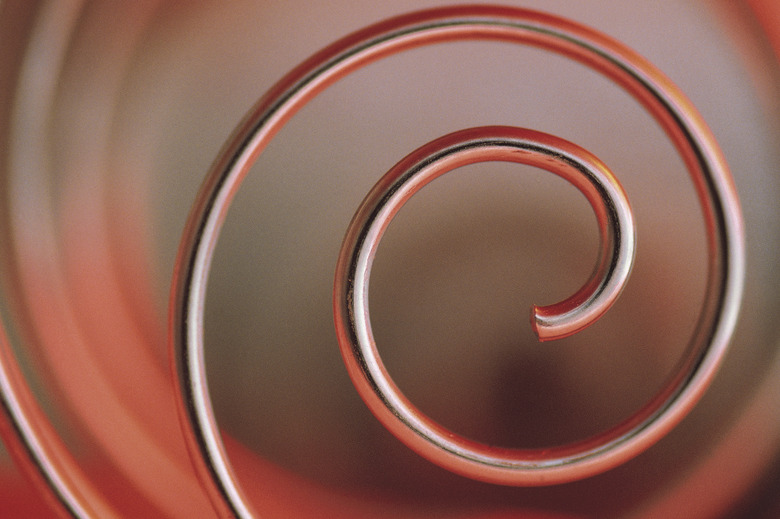How To Locate Copper Deposits
Geologists employ many techniques to locate copper deposits, from testing the components of ore to studying land features to determine probable locations for a copper deposit. The process is not as easy as it once was, in part because environmental regulations prevent exploratory digs deep in the earth. As a result, modern geologists rely more on advanced technology to locate copper deposits.
Step 1
Contact the the U.S. Geological Survey (USGS) to obtain a report that outlines where the most likely copper deposits are found worldwide.
Step 2
Select a likely location where copper might be found, such as Arizona or the Upper Peninsula of Michigan and travel there. Secure exploration permits from the states where you will be exploring.
Step 3
Look for igneous rocks. Igneous rocks are volcanic in origin, and copper is usually located in igneous rock formations that are surrounded by rocks that have been altered by volcanic pressure and high temperatures. These deposits are called porphyry copper deposits.
Step 4
In addition, search for rocks that are green or pieces of ore that have green flecks. The green hue is characteristic of copper.
Step 5
Remove samples of the rocks and take them back to the lab for testing. If the rocks have a high part per million count of copper, then you may have found a copper deposit. How much copper needs to be in the ore before you mine the deposit depends on the method you wish to use to extract the copper.
TL;DR (Too Long; Didn't Read)
Some geologists also pan for copper or test the soil near places where they believe that copper deposits are located. However, these tests often produce false results because industrial waste and pollution might add copper to soil or water.
Warning
Always obtain the correct permits to explore for copper. Each state has different requirements.
Observe environmental laws for copper exploration and mining set forth by the Environmental Protection Agency (EPA).
References
Cite This Article
MLA
Smith, Natalie. "How To Locate Copper Deposits" sciencing.com, https://www.sciencing.com/how-8026927-locate-copper-deposits/. 9 January 2018.
APA
Smith, Natalie. (2018, January 9). How To Locate Copper Deposits. sciencing.com. Retrieved from https://www.sciencing.com/how-8026927-locate-copper-deposits/
Chicago
Smith, Natalie. How To Locate Copper Deposits last modified August 30, 2022. https://www.sciencing.com/how-8026927-locate-copper-deposits/
